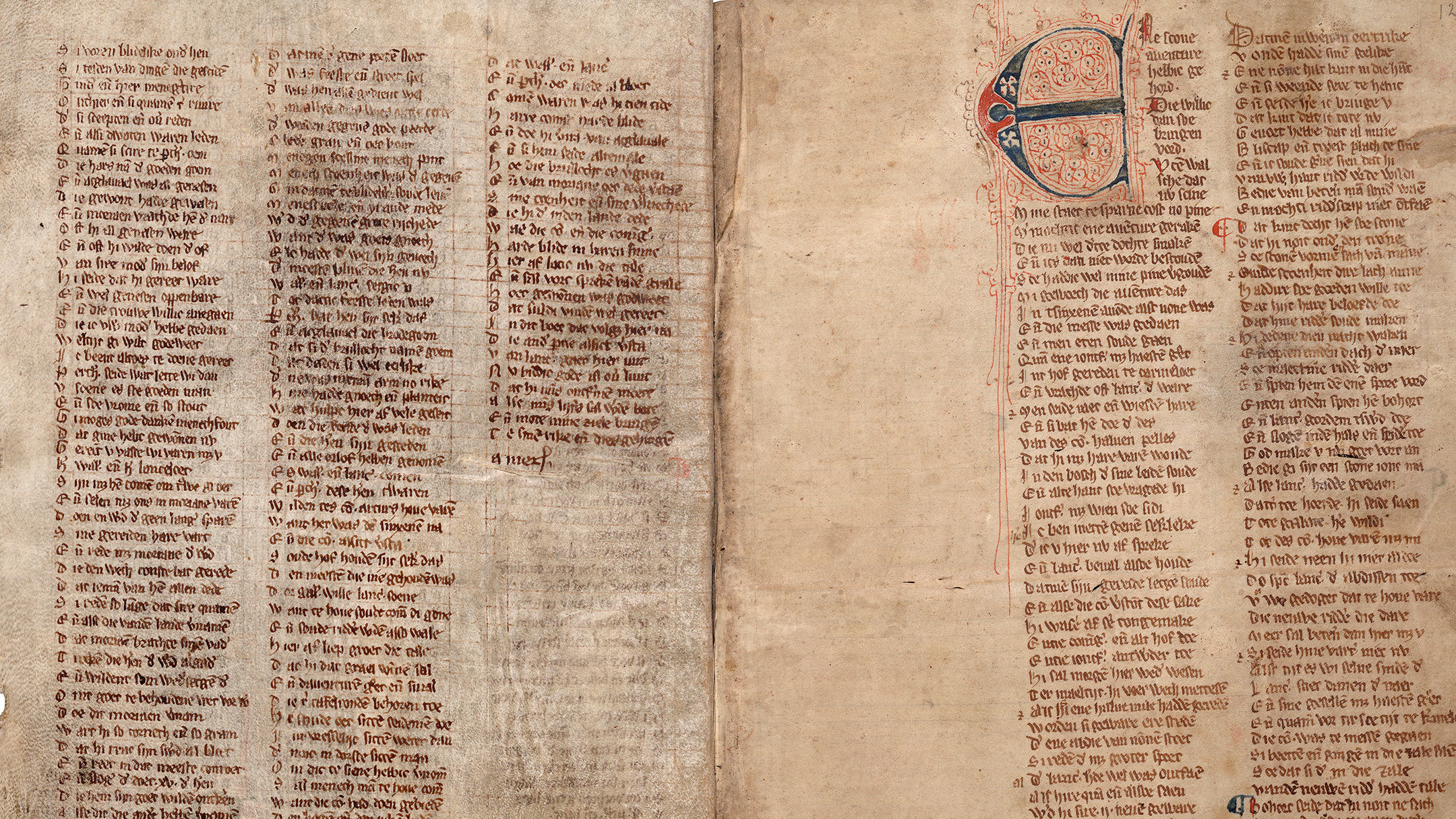Miyashiro, Adam. "Comparative medieval literatures: Race and colonialism in the global Middle Ages." Throughlines. www.throughlines.org/suite-content/comparative-medieval-literatures. [Date accessed].
Comparative medieval literatures
Considering the field of postcolonial theory and its relevance to medieval literature.

This course considers the field of postcolonial theory and its relevance to medieval literature. Postcolonial theory has dramatically reshaped the fields of literary criticism, history, philosophy, and cultural studies over the past thirty years. Originally designed as a response to British and French imperial projects in Africa, Asia (including the Middle East), and the Americas, postcolonial theorists have posed challenges to the medieval and broader premodern world, asking whether this form of inquiry can be used to understand how European identity had been defined against that which was considered not European. We will consider these and other questions, including contrapuntal readings of the Crusades, constructions of race, religious and linguistic difference, and a reconsideration of categories such as Eastern/Western, Muslim/Jew/Christian, and modernity and periodization.
Course readings
The following books are required for the course:
The Song of Roland. Trans. Glyn S. Burgess. Penguin Classics, 1990.
The Song of the Cid (Penguin Classics) A Dual-Language Edition with Parallel Text. Trans. Burton Raffel. Penguin Classics, 2009.
Smith, Zadie. The Wife of Willesden. London: Penguin, 2021.
Heller-Roazen, Daniel, and Muhsin Mahdi, eds. The Arabian Nights. Trans. Husain Haddawy. W. W. Norton & Company, 2009.
Niane, Djibril Tamsir, and G. D. Pickett. Sundiata: An Epic of Old Mali. Revised Edition, Pearson College Div, 2006.
Ghosh, Amitav. In an Antique Land: History in the Guise of a Traveler’s Tale. Vintage, 1994.
Boccaccio, Giovanni. The Decameron. Ed. Wayne A. Rebhorn. Critical edition. New York: W. W. Norton & Company, 2015.
Stoneman, Richard, and Pseudo-Callisthenes. The Greek Alexander Romance. Reprint edition, Penguin Classics, 1991.
Further learning
Recommended
.jpg)
La Chanson de Roland and white supremacist medievalisms
La Chanson de Roland as a national epic was a product of both European nationalist and colonial aspirations. It's important for students to understand how the poem and its histories can reiterate Eurocentric white supremacist values if not properly contextualized.


.jpg)




